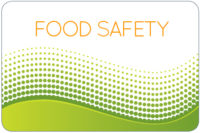If almost 10 years of writing about the meat industry has done anything for me, it’s made me more immune to the common tactics used to turn people away from eating meat. You can’t scare me about what really goes into hot dogs or chicken nuggets, because I’ve seen them made, and I know what really goes into them – the same wholesome ingredients that go into any other meat product.
How about health reports that state that even a sliver of salami can raise your blood pressure, give you diabetes and cause five kinds of cancer? Frankly, I’ve never seen a scientific study that wasn’t disputed by at least one other. In fact, the only health plan I’ve never seen questioned is the “everything in moderation” strategy, which would include a moderate serving of meat as well.
However, when someone questions if it’s ethically acceptable to eat meat, I can’t just dismiss it, because it questions my sense of right and wrong.
Contrary to those who claim that America’s heartland is populated by factory farms, only 4 percent of farms are corporate-owned. Eighty-seven percent of farms are owned by individuals or families (source: 2007 Census), which means most of the protein my family eats came courtesy of overworked, underappreciated farmers who deserve my support.
I also believe in supporting the processing companies by buying their products, whether it’s the family-owned small processors I cover in this magazine or a billion-dollar corporation. We’ve seen communities that have been devastated when a local meat plant shuts down, leaving dozens or hundreds of hard-working people without jobs. The country needs those jobs, as well as the jobs of everyone attached to the meat industry, including suppliers, truckers and retailers.
The crux of the ethical argument, though, comes down to whether it is justifiable to kill another living thing in order to sustain oneself. Animals provide a source of protein that is critical if not essential to human growth and development. In order to harvest that resource, though, it needs to be done the right way. That is, in a manner that is respectful and humane to the animal.
While an article I recently read on CNN.com stated that animal cruelty is the norm in the meat industry, I believe the exact opposite. Incidents of animal abuse that are found are the result of outliers in the industry – a company that is intentionally negligent, or most likely, a well-intentioned company with poor employee training or monitoring programs. As those incidents get reported, the bad players will get driven out of the industry, and the good ones will learn and improve their practices.
This is not a perfect industry. There will always be improvements that can be made in terms of food safety, sustainability and employee welfare, to name a few. The meat community keeps moving forward, one breakthrough at a time, and there is no reason to let the activist minority claim the moral high ground. The industry needs to keep touting its successes in all areas and let consumers know they can enjoy their steak or turkey dinner with a clear conscience.





Report Abusive Comment